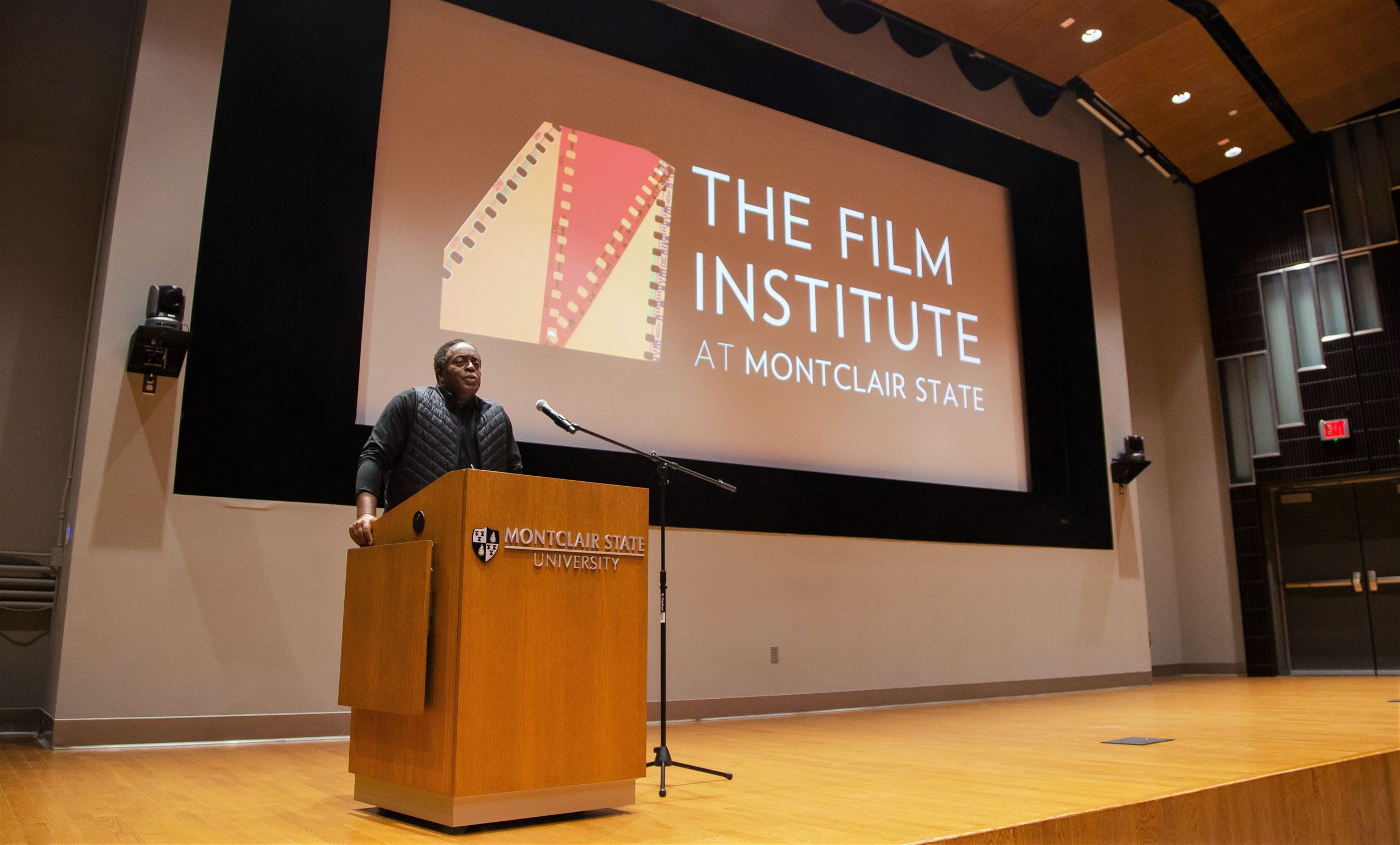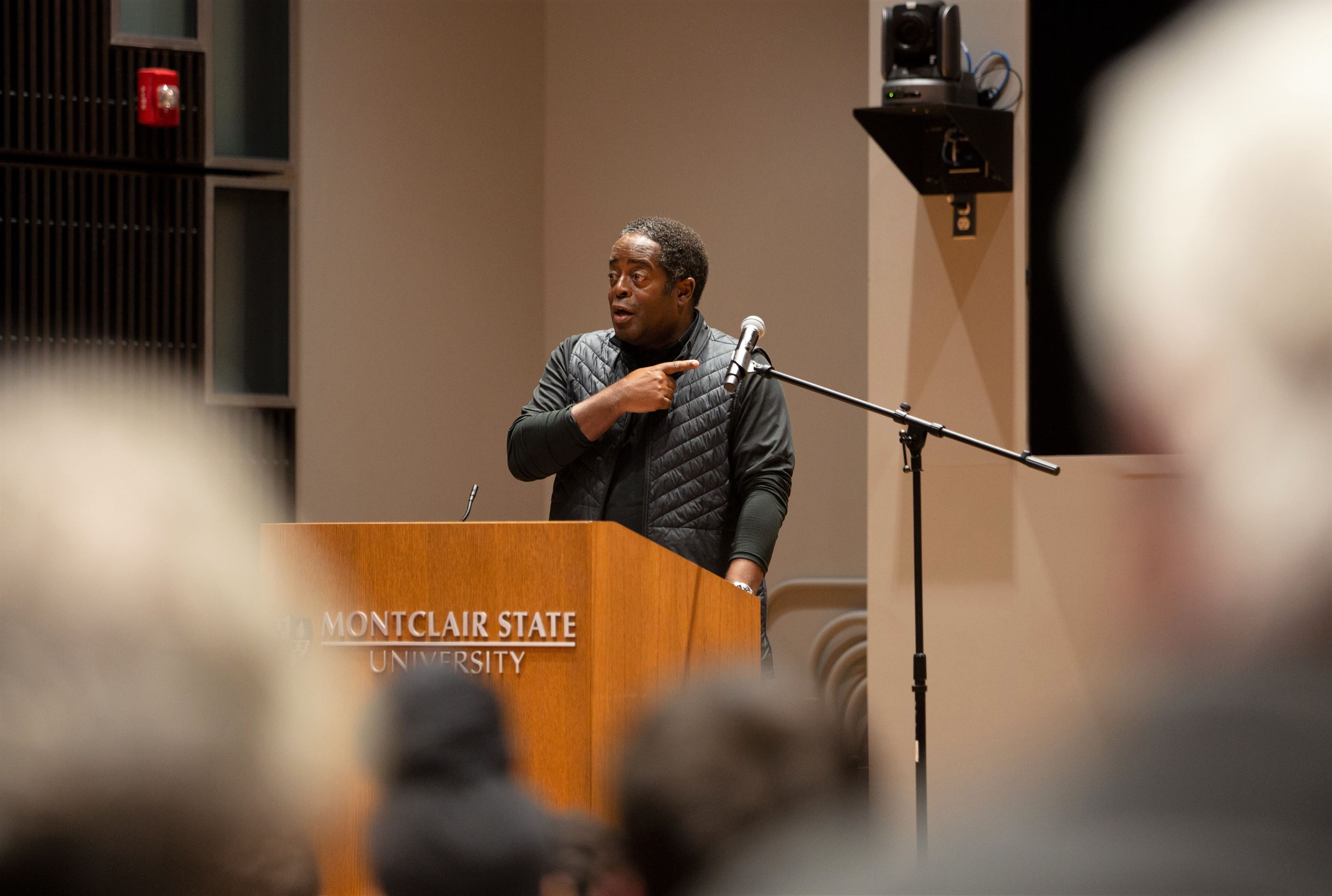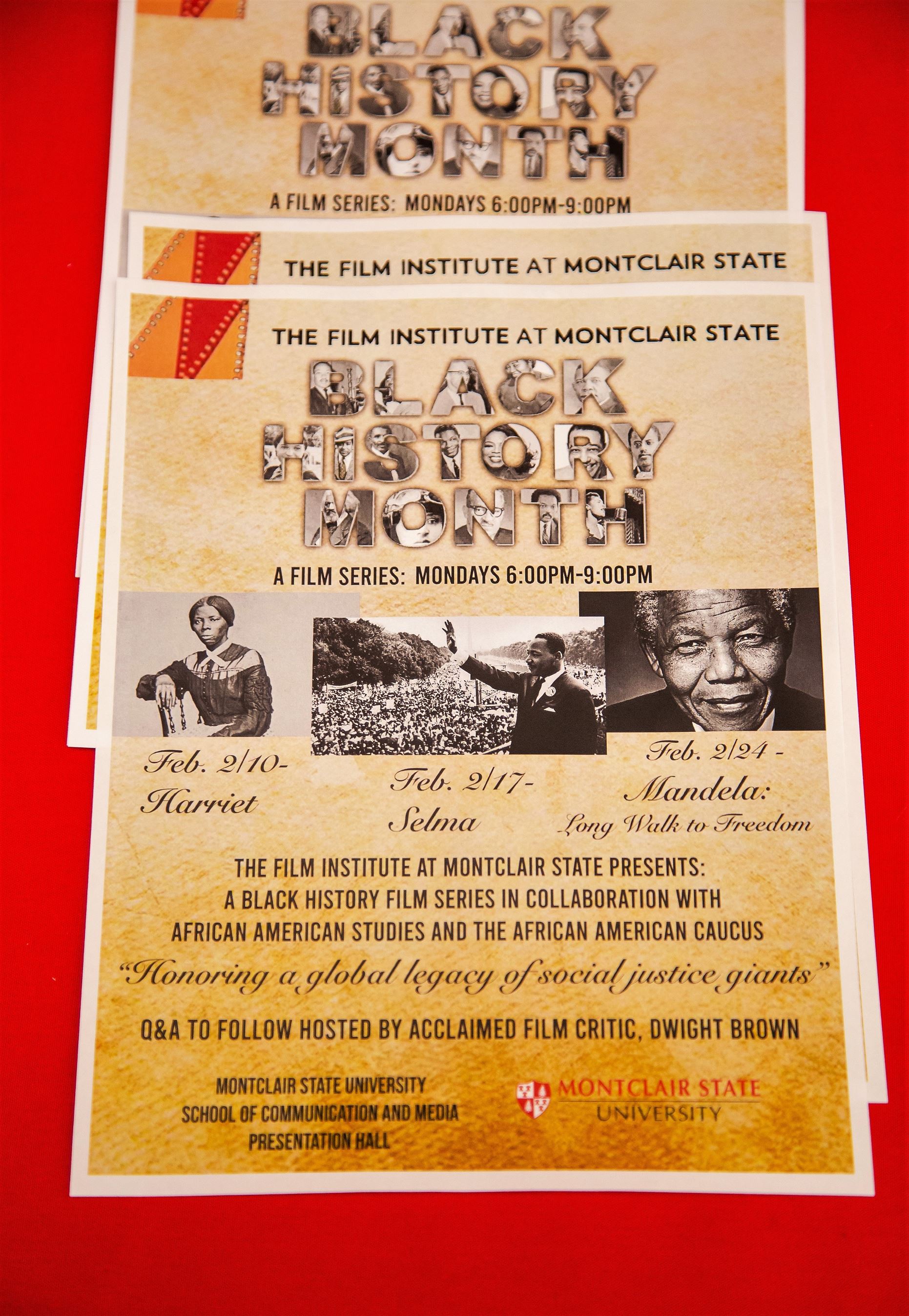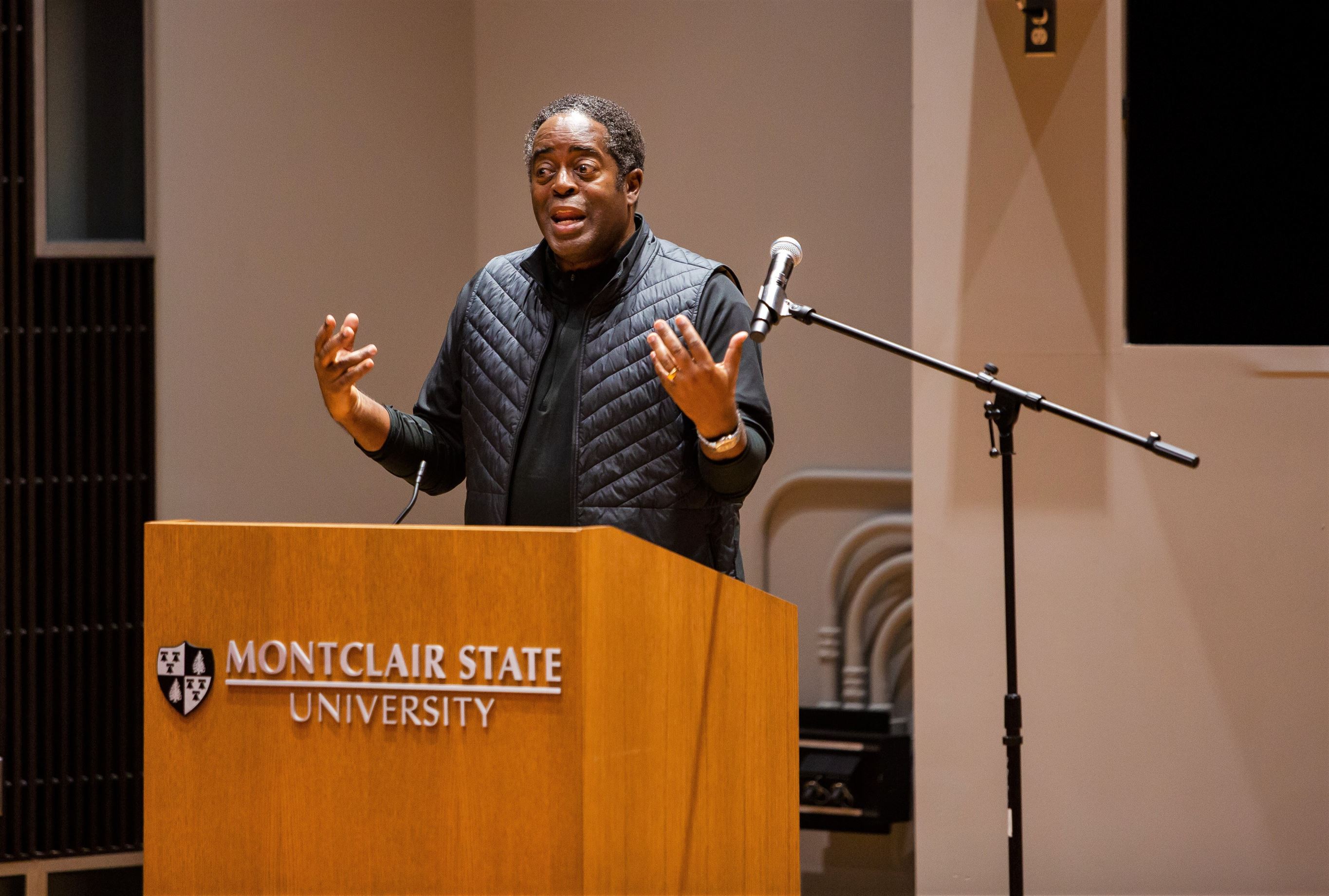The Film Institute at Montclair State University, in collaboration with African American Studies and The African American Caucus, presented the first screening of their Black History Film Series on Monday night. Held in the presentation hall of the School of Communication and Media, “Harriet” kicked off the night.

Dwight Brown leads a Q&A regarding the film “Harriet.” Chris Krusberg | The Montclarion
There was a great turnout for the first of three screenings that celebrate and educate people on important historical figures in African American history.
“Harriet” tells the true story of Harriet Tubman, an African American woman who escaped slavery only to return to the south 13 times, freeing hundreds of slaves through the Underground Railroad.
The film, directed by Kasi Lemmons, depicts a heartbreaking vivid picture of 19th century America. It was impossible not to feel the anxiety through the screen as Tubman made her trips to and from the south, all the while getting chased down by brutal slave catchers.
The sense of bravery and assertiveness Cynthia Erivo, the actress who portrayed Tubman, was able to convey was both inspirational and emotional.
Jayda Lindsey, a senior family science and human development major, was a fan of the film.
“I thought it was a very good film,” Lindsey said. “It did a very good job of playing her life on the screen.”
As for Andy Sweeney, a junior German major, “Harriet” was gripping, leaving him fully engaged throughout the entire duration of the film.
“It was really moving, but I was a little disappointed to find out that the one part that really moved me was fake,” Sweeney said. “But I also wanted to learn a lot and I did learn a lot so I really liked it.”
Following the screening, acclaimed film critic Dwight Brown held a Q&A with the audience.

Dwight Brown, an acclaimed film critic, hosted an interactive audience discussion following the screening of “Harriet.” Chris Krusberg | The Montclarion
He began by informing everyone of the falsities in the film, which were dramatized by Hollywood. Such as Joe Alwyn’s character, Gideon Brodess, the master’s son, and Janelle Monae’s character, Marie Buchanon, the owner of the Philadelphia boarding house in which Tubman resides.
Brown explained that the purpose of these characters was to show that people who were born into slavery and the master’s children may have grown up getting along, but there was still a clear distinction between their places in society, which is shown between Tubman and Brodess.
As for Buchanon, her character showed that there were also African Americans who were born free and never knew what it was like to be a slave.
Brown recalled writing his review of the film stating that he initially wondered how the director was able to take on such a big task of putting Tubman’s entire life into one film, adding that Lemmons should have been nominated for an Oscar.
“I’m not sure how this woman did it, but she did a beautiful job with what she had,” Brown said. “It just seemed very organic considering it’s a Hollywood movie. Everything just looked professional but she still made it feel very authentic and very real to me.”

Dwight Brown leads a Q&A regarding the film “Harriet.” Chris Krusberg | The Montclarion
According to Brown, he had watched an interview with Tubman’s great-great-great grand-nieces, where they said they often don’t mention their relation to Tubman because no one would believe them.
Brown also talked about how African American culture is typically more of an oral tradition rather than a written one.
The “Harriet” screening and followed Q&A taught everyone in attendance a great deal of history that they perhaps did not know before. It paid a great respect to Tubman as well as those who were tormented in such an unfortunate time in history.

Black History Month Film Series’ list of events throughout February. Chris Krusberg | The Montclarion
The following screenings in the Black History Film Series will be “Selma” on Feb. 17, and “Mandela: Long Walk to Freedom” on Feb. 24, to further celebrate Black History Month and some of the most influential African American figures in history.



